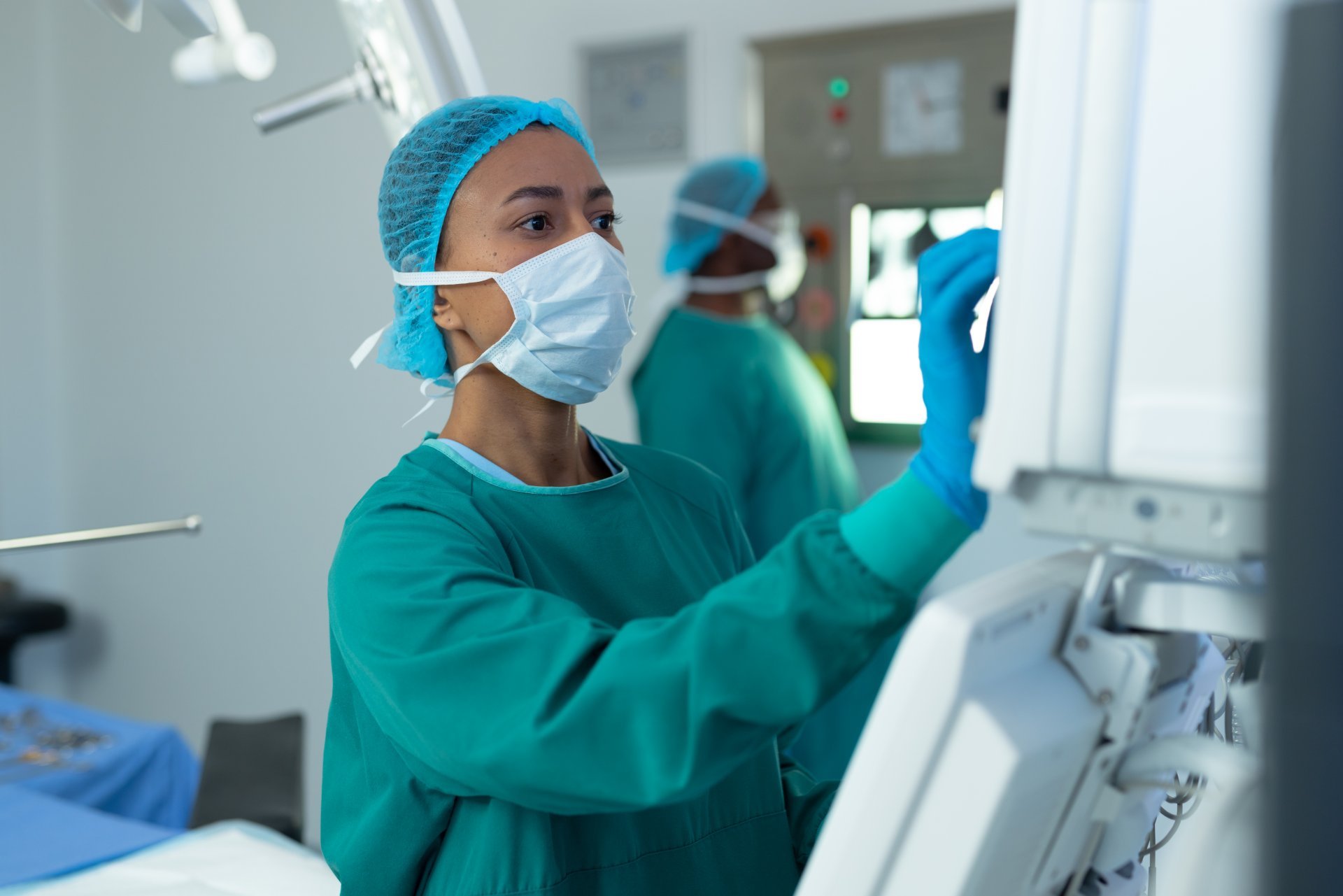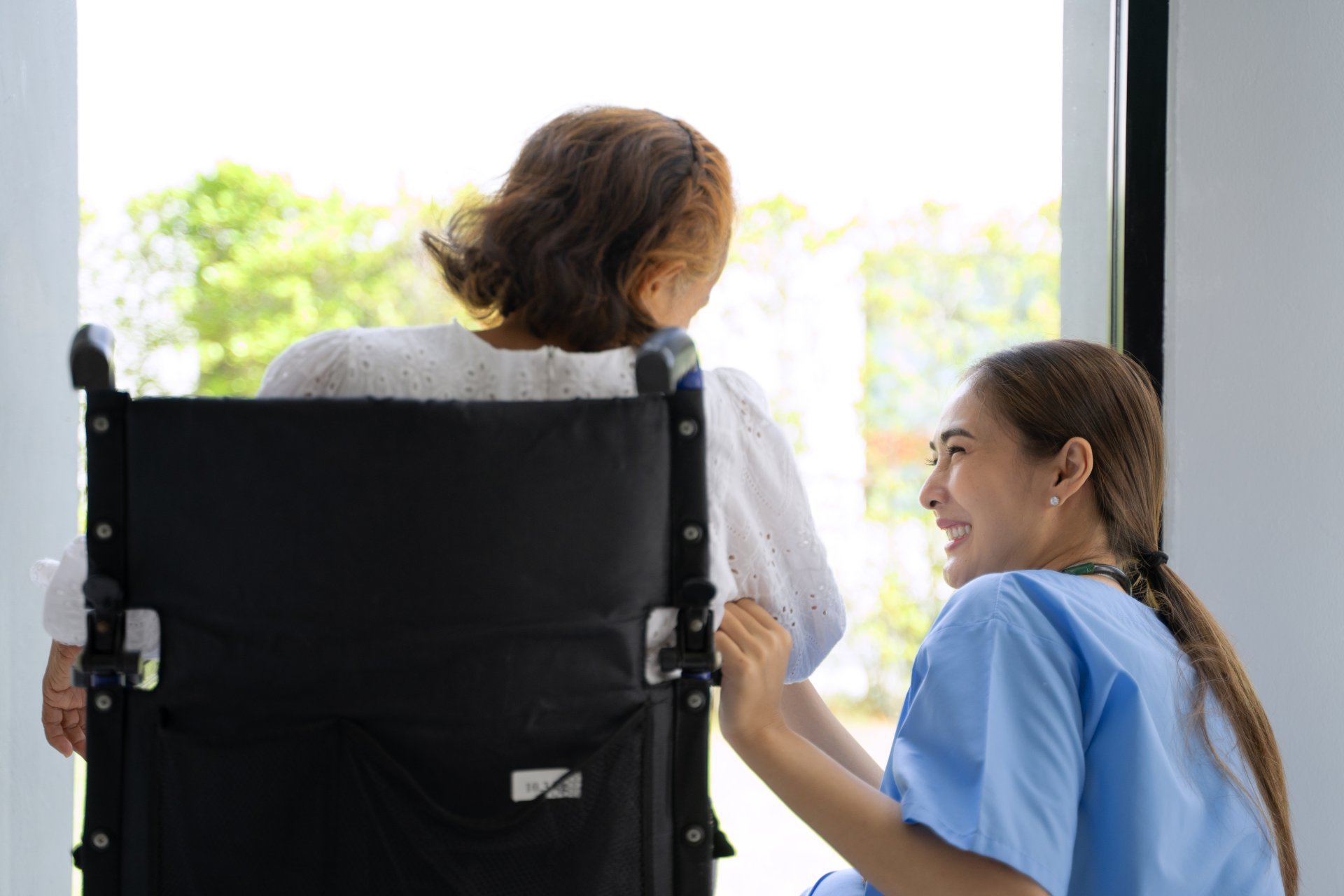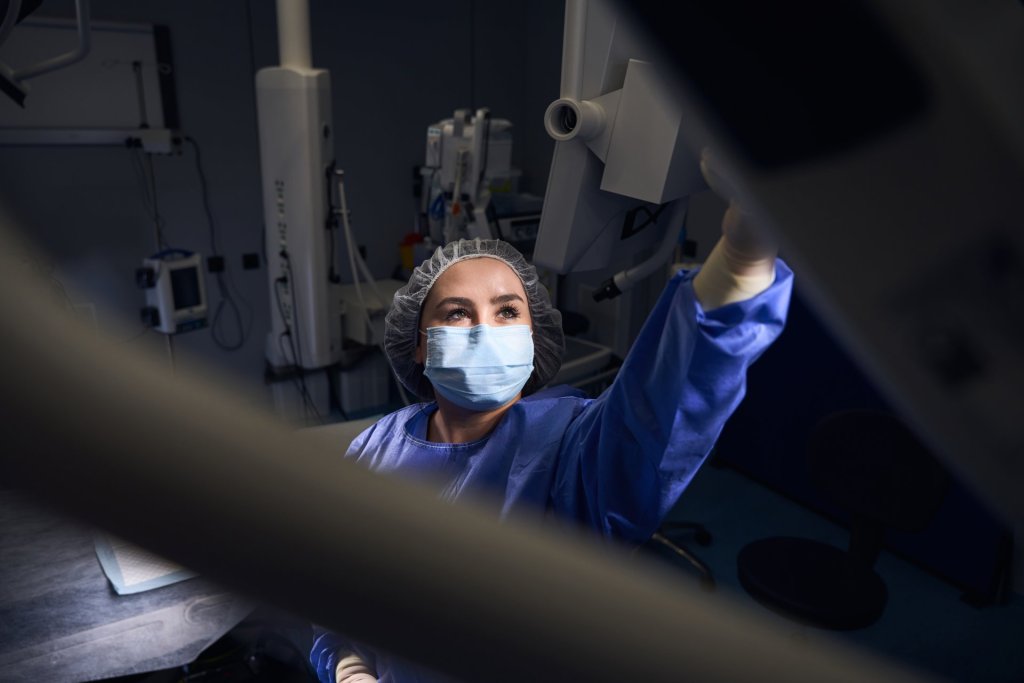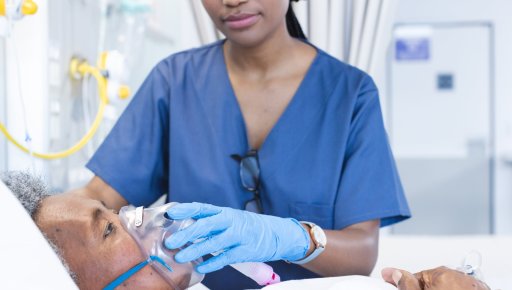The United States is facing a serious shortage of nurses. By 2030, the number of Americans aged 65 or older is expected to reach 82 million. At the same time, more nurses are approaching retirement age, which means that current shortages are bound to get worse.
This is a particular issue in areas like cardiovascular care. Heart disease is still the leading cause of death among men and women of all races in the United States, so having enough providers in this field of medicine has become more urgent than ever before.
If you’re considering entering the healthcare field as a nurse, one promising option is to work in a cardiac catheterization lab. A cardiac cath lab nurse assists doctors and works directly with patients during all manner of cardiac procedures. Learn more about this profession and how to succeed if you choose to pursue it.
What is a cath lab nurse?
A cardiac catheterization lab nurse is a nurse who focuses on caring for cardiac patients. They assist these patients before, during, and after heart procedures such as cardiac catheterizations.
Cardiac catheterizations are not surgeries but are instead diagnostic and treatment procedures that doctors, assisted by care teams, perform with the use of advanced imaging.
Cardiac catheterization lab nurses typically work full-time in cath labs located in hospitals and large clinics. They collaborate with a variety of medical professionals during their daily routine.

Duties of cath lab nurses
Cardiac catheterization lab nurses perform a variety of duties, with most of them involving direct patient care.
Managing paperwork
Cath lab nurses may handle a variety of paperwork, including consent forms for procedures. They must keep meticulous records and make certain that all patient medical histories are complete and accurate. After procedures, cath lab nurses must update patient charts.
Preparing for procedures
Cardiac cath lab nurses sterilize the spaces where procedures will take place. They also prepare patients for the medical interventions they will undergo in the cath lab. This can include shaving and cleansing the catheter insertion site as well as helping patients understand what to expect as they undergo treatment.
It’s common for patients to be anxious and worried about heart procedures, no matter how routine the procedure is for the doctors and nurses who perform it. Therefore, cardiac catheterization lab nurses must be ready to answer questions and provide support to patients and their families.
Ensuring safety during procedures
During the catheterization procedure, nurses are tasked with monitoring patient vitals and sedation. If there are any concerning signs, they must act fast.
Additionally, cardiac cath lab nurses must also monitor their own safety and that of other care staff by ensuring that everyone has the right protective gear, including lead aprons, glasses, and other equipment that can block radiation.
Assisting during procedures
Along with diagnostic cardiac catheterizations, cath lab nurses also assist doctors during procedures such as stent placements, balloon angioplasties, and mitral valve repair. They may initiate IV lines and administer medications.
Monitoring patients after procedures
One of a cardiac catheterization lab nurse’s most important duties is monitoring patients after they’ve had cath procedures. They check vital signs and look for signs that point to adverse reactions to sedation. These nurses also monitor for infections and alert doctors to any changes in patient conditions.
Collaborating with the care team
Because cardiac cath lab nurses are an essential part of the care team, they collaborate closely with doctors, other nurses, and a variety of medical professionals.
Providing patient education
Cardiac cath lab nurses also provide education to patients and their families. They offer insight into procedures and review aftercare instructions to help the recovery process go by more smoothly and without complications.
How to become a cardiac cath lab nurse
To become a cardiac cath lab nurse, you must have earned a high school diploma or its equivalent. You can then begin your journey by pursuing higher education.
Earn a degree
You have a choice of whether to pursue an associate degree or a bachelor’s degree in nursing from an accredited school. Because of the competitive nature of these positions, a bachelor’s degree could be the better option. Many employers are now looking for four-year degrees when hiring cath lab nurses.
Pass the NCLEX-RN
Once you complete your degree, you can then take the NCLEX-RN. A passing score on this exam is required to become a registered nurse.
The National Council of State Boards of Nursing (NCSBN), a nonprofit organization, administers the NCLEX-RN. It is a computerized adaptive test that ranges from 75 to 145 questions that get increasingly harder. If you make an error, the questions get easier again. Answering correctly at a consistently high difficulty level allows you to pass.
The exam takes up to five hours. If you pass it, you are seen as having the necessary knowledge to apply for your license to become a registered nurse.
Gain experience
After you receive your license, you’ll start gaining experience in the field. It’s very rare for a newly licensed nurse to begin working in a cardiac cath lab soon after passing their NCLEX-RN exam. Instead, the most helpful places to work are cardiac units, cardiac step-down units, emergency rooms, and intensive care units.
Earn certifications
To become a cardiac catheterization lab nurse, you’ll need certifications in Basic Life Support and Advanced Cardiac Life Support. Basic Life Support courses teach registered nurses emergency lifesaving interventions such as how to use an automated external defibrillator, how to perform CPR, and what to do if someone is choking.
Nurses who work in cardiovascular units need certification in Advanced Cardiac Life Support. This certification teaches you lifesaving skills that go beyond what you learned in your Basic Life Support course so you can help patients who are having strokes, myocardial infarctions, and cardiac arrests.
Optional: Get certified for Cardiac Vascular Nursing
It is highly recommended, though optional, to earn a certification in Cardiac Vascular Nursing. To be eligible for this certification, you must hold a valid RN license and have two years of experience working as a nurse. Some of this experience must have been in an appropriate cardiac nursing unit within the past three years.
You must also have completed 30 hours of continuing education courses in cardiovascular nursing.
Optional: Get certified to become a Critical Care RN
Another area to consider receiving certification in is Critical Care. To become certified, you need at least five years of experience as an APRN or RN and a significant number of hours treating critically or acutely ill patients, including a certain number of hours within the past year.

Soft skills for cardiac cath lab nurses
Knowledge and certifications are important, but they’re not the only qualifications you need. To be successful in their chosen field, cardiac catheterization lab nurses must possess a number of soft skills.
Critical thinking
Working in high-pressure situations requires quick and rational thinking. Cardiac catheterization lab nurses may need to make critical judgment calls for patients. An example would be if a patient’s vital signs begin to drop during a procedure. The nurse has to act fast to stabilize them while the doctor continues working.
Being able to think quickly and place the patient’s best interests first is essential in any nursing field, but it can be especially important when caring for patients with heart conditions.
Attention to detail
From the moment a cardiac catheterization lab nurse meets a patient, they must take in every detail of the person’s physical state. That attention must continue throughout all of their interactions because nurses are expected to spot minor signs that something may be off.
Paying close attention to details when monitoring patients can allow a nurse to catch adverse reactions to sedatives and other medications. Nurses who possess this skill can improve the patient care experience and long-term outcomes.
Effective communication
Cardiac catheterization lab nurses must have strong communication skills because they work with entire care teams. They must be able to quickly and effectively explain a patient’s state to other medical professionals and update patient records with as much relevant information as possible.
These nurses must also know how to communicate complex diagnoses and treatments in simple terms to patients and their caregivers. They must exercise patience when answering patients’ questions and addressing their concerns.
Empathy
As for all nurses, one of the most vital skills that cardiac catheterization lab nurses need is empathy. Patients are often frightened and anxious about the procedures they will undergo. A nurse has to know how to support and calm them.
This isn’t always simple, especially with more difficult patients, but nurses must maintain a stance of compassion at all times.
Stress management
Working in a cardiac catheterization lab is stressful. Nurses may come into daily contact with people who are really struggling with their health, and that could mean dealing with emergencies. To protect their own physical and mental well-being, nurses have to know how to decompress after work and manage their stress levels.
Having poor stress management skills can result in burnout, which is one of the most common reasons that nurses leave the field.
Multitasking and organization
The cardiac catheterization lab environment is fast-paced and busy. This often means nurses have to take care of a number of things at the same time. Cardiac catheterization lab nurses need to know how to multitask without sacrificing accuracy or quality of care. This is especially important when dealing with patient records.
Nurses also need strong organizational skills so that they can tackle the most urgent tasks first and triage everything else.
Endurance
Working as a cardiac cath lab nurse means spending a lot of time on your feet. You might be called on to help transport patients as they regain their strength and stability, and you have to physically be able to perform CPR. Additionally, you must be comfortable working long shifts of 10 hours or more, depending on your employer.
Teamwork
Cardiac catheterization lab nurses work as part of a healthcare team. They must possess strong teamwork skills to be able to provide the quality of care that patients deserve.
Openness, reliability, and flexibility are skills that make a difference in team dynamics. A willingness to compromise and resolve conflicts with courtesy is also essential. Interpersonal issues should never get in the way of patients receiving the care they need.
Advancing your cardiac cath lab nurse career
Once you’ve become a cath lab nurse, you can further advance your career through training and certification. For example, you can pursue additional education to qualify for positions such as acute care nurse practitioner or catheterization lab clinical nurse specialist.
Another option that can offer higher salaries and new experiences on and off the clock is travel nursing. Travel nurses accept short-term positions in other cities and states, traveling throughout the country and providing nursing care where it’s needed most.
Travel nursing positions come with numerous benefits, including housing and travel stipends. This career path gives you a chance to meet new people and work with all manner of professionals, building a network of contacts who could open the door to interesting and rewarding opportunities.
Level up your nursing journey with Prolink
If you’re considering working in the nursing field, becoming a cardiac catheterization lab nurse can offer exciting work options, excellent salaries, and the chance to help lots of people. Whether you prefer to work at a local hospital or travel across the country for short-term postings, the team at Prolink can help.
Prolink connects nurses like you with some of the best health systems in the country for short-term and long-term positions. We work closely with all of our clinicians, getting to know them and their career goals so that we can offer the opportunities they’re looking for.
Click below to connect with a Prolink recruiter and take control of your nursing career.









